
One Step Closer to Smarter Electronic Devices, Using Voltage-Driven Ionic Control
Monday, June 23, 2025 Researchers at the University of Waterloo demonstrate an innovative way to manipulate spin properties. Smartphones that anticipate needs. Wearable technology that responds instantly to one’s body. Smart home devices that understand context more intelligently. All at a greener energy footprint and a higher efficiency rate. Yes, researchers are one […]
June 23, 2025
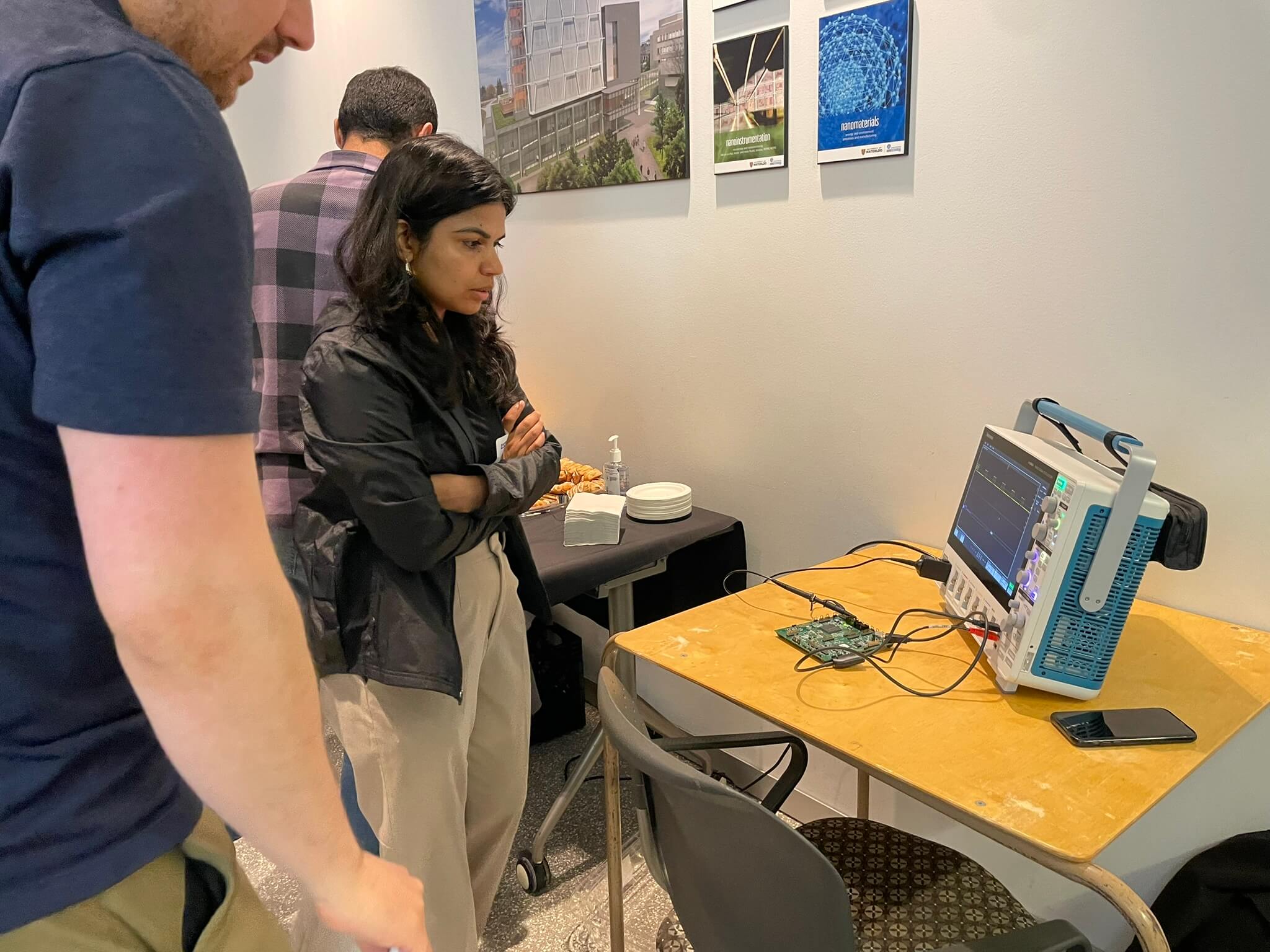
Electrical Characterization Seminar Paves a Path for Future Collaborations
Electrical Characterization Seminar Paves a Path for Future Collaborations Event held on Tuesday, May 27, 2025 On Tuesday, the Quantum-Nano Fabrication and Characterization Facility (QNFCF), Transformative Quantum Technologies (TQT), and Testforce hosted the Electrical Characterization Seminar, joined by speakers from Keithey and Tektronix. The seminar saw over 30 attendees, including students, postdoctoral fellows, and […]
May 27, 2025

Battling Quantum Decoherence, One Flat Band At A Time
Thursday, April 24, 2025 Researchers establish a novel way to strengthen electron correlations by controlling flat band electronic structures in Transition Metal Dichalcogenide. Quantum decoherence is often a challenge that quantum scientists seek to mitigate. When an object loses its quantum properties and starts behaving like a classical object (i.e. ordinary objects whose […]
April 24, 2025
Mastering Electrical Characterization Seminar
Mastering Electrical Characterization Seminar Event to be held on Tuesday, May 27, 2025, 9:00 AM – 1:00 PM, QNC 1501 The Quantum Nano Fabrication and Characterization Facility (QNFCF), Transformative Quantum Technologies (TQT) and Testforce will be hosting an Electrical Characterization Seminar joined by a Keithley Applications Engineer, who will explore the challenges and best […]
April 21, 2025
Waterloo's Quantum
Valley
QVI - Quantum Valley Investments RAC - RAC Complex QVIL - Quantum Valley Ideas Lab IQC - Institute for Quantum Computing at the University of Waterloo (UW) QNF - Quantum Nanofab, UW PI - The Perimeter Institute for Theoretical Physics LI - Lazardis Institute for the Management of Technology

The Second PVD Seminar Engages the IQC Community
The Second PVD Seminar Engages the IQC Community Event held on Tuesday, April 1, 2025 On Tuesday, the Quantum-Nano Fabrication and Characterization Facility (QNFCF) and Transformative Quantum Technologies (TQT) hosted the Physical Vapour Deposition (PVD) Seminar: Part 2, joined by speaker Mike Miller (Angstrom Engineering). The seminar saw over 40 attendees, including students, postdoctoral […]
April 1, 2025

New funding set to accelerate Canada’s quantum industry capabilities
New funding set to accelerate Canada’s quantum industry capabilities March 17, 2025 Waterloo research project gets a million dollars to improve quantum measurement tools A research project led by Institute for Quantum Computing (IQC) faculty Dr. David Cory, professor in the Department of Chemistry, has received $1 million to advance quantum metrological standards. The project […]
March 17, 2025
Physical Vapour Deposition (PVD) Seminar: Part 2
Physical Vapour Deposition (PVD) Seminar: Part 2 Event to be held on Tuesday, April 1, 2025, 10:00 AM – 2:30 PM, QNC 0101. Building upon the knowledge from the Physical Vapour Deposition (PVD) Introductory Seminar – which introduced film growth techniques and potential applications – the Quantum – Nano Fabrication and Characterization Facility (QNFCF) […]
March 11, 2025

Reflecting on a year of community, growth and milestones at the Institute for Quantum Computing
Reflecting on a year of community, growth and milestones at the Institute for Quantum Computing Wednesday, December 18, 2024 As the year draws to a close, we reflect proudly on the accomplishments of the Institute for Quantum Computing’s (IQC) community of researchers, postdoctoral fellows and graduate students for their research excellence, academic achievements and […]
December 18, 2024
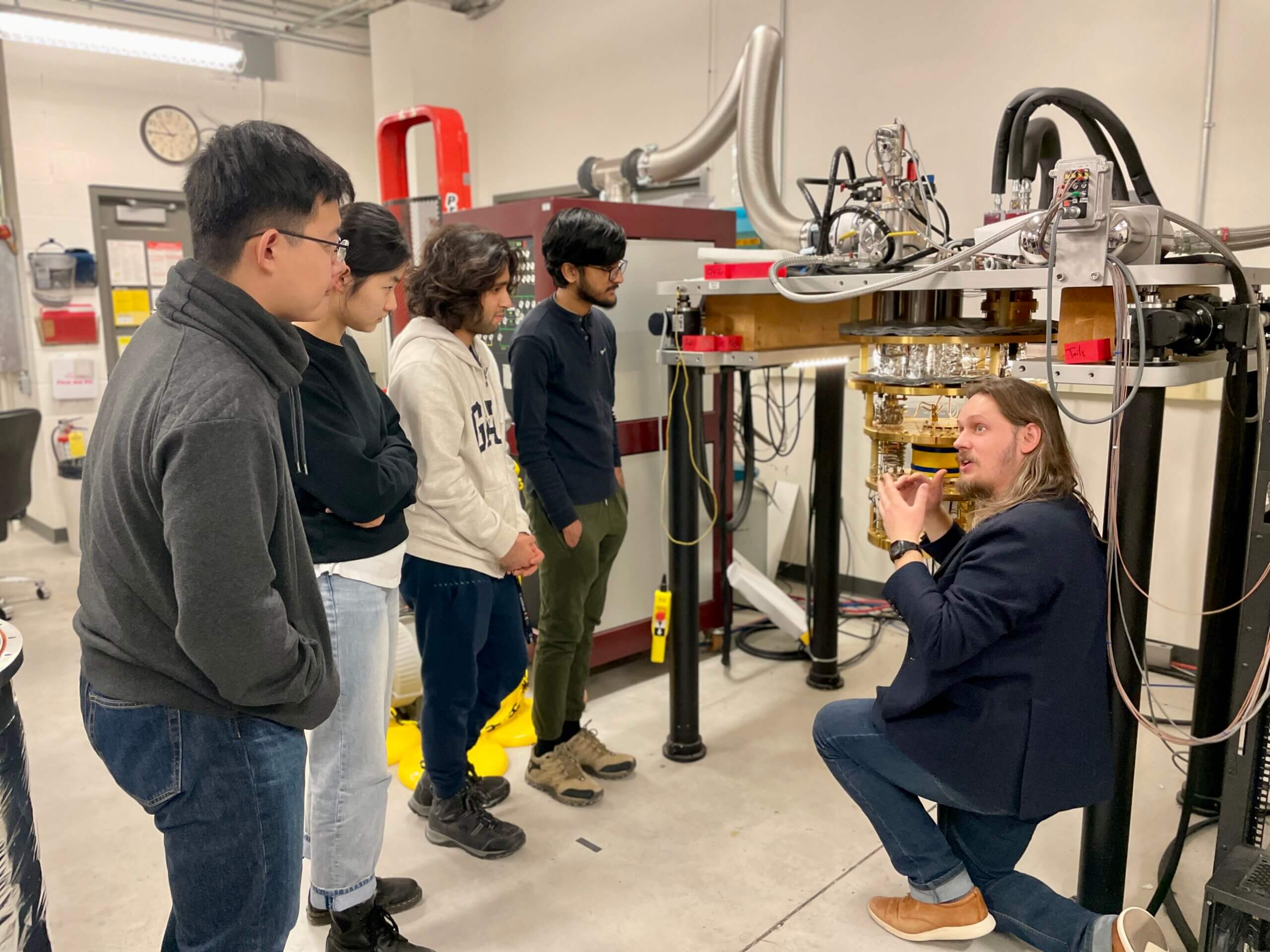
Students with interdisciplinary backgrounds harness the second quantum revolution
Students with interdisciplinary backgrounds harness the second quantum revolution Monday, December 9, 2024 En Français Graduates and program leaders of IQC’s Master of Science degree in Physics with a specialization in Quantum Technology explain the purpose and benefits of the program. The International Year of Quantum Science and Technology (IYQ) is just around the corner […]
December 9, 2024
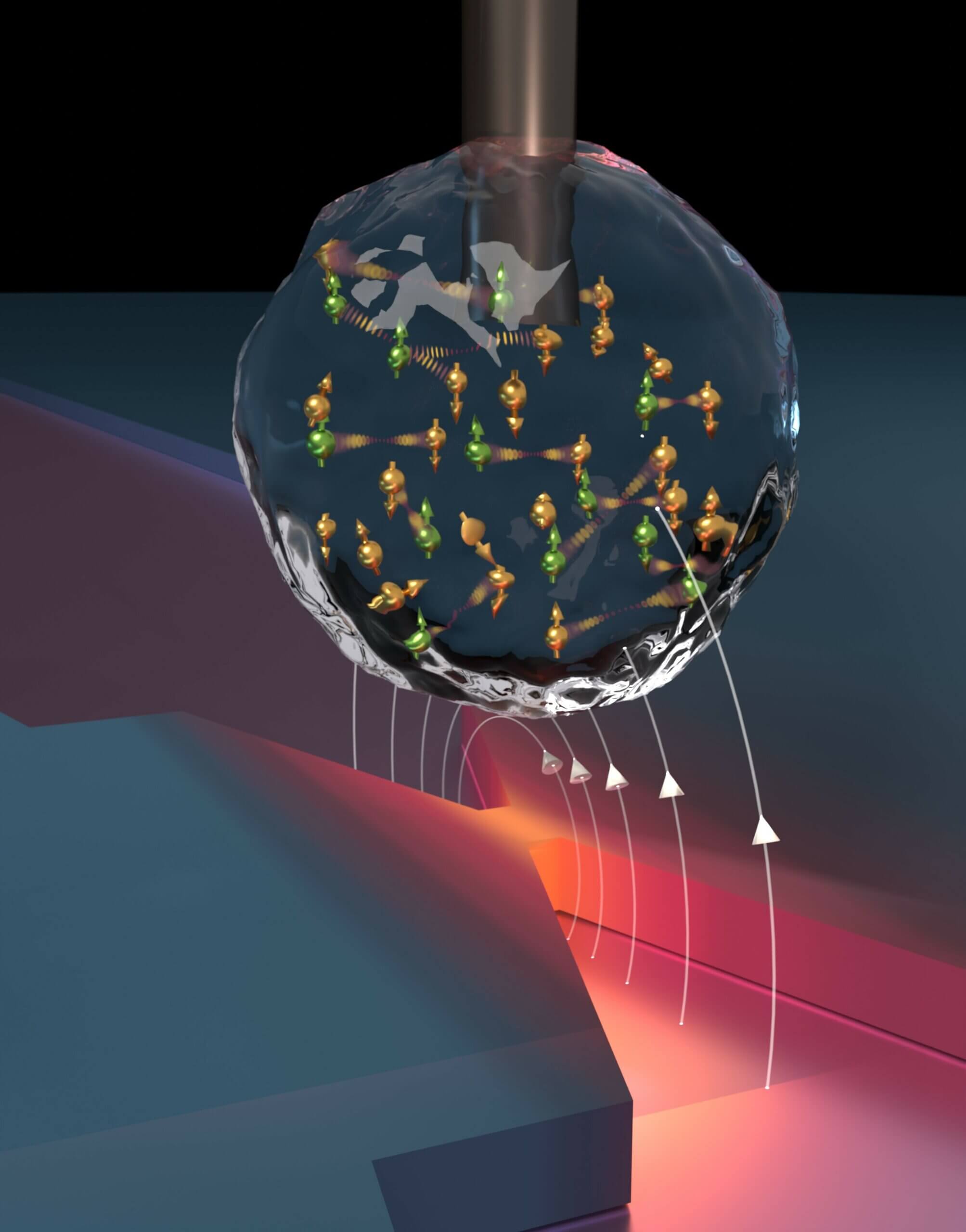
Waterloo researchers advance nanoscale imaging capabilities
Thursday, August 22, 2024 Dynamic nuclear polarization and nanometer-scale magnetic resonance imaging creates unprecedented opportunities to study biological structures Dynamic nuclear polarization (DNP) has revolutionized the field of nanoscale nuclear magnetic resonance (NMR), making it possible to study a wider range of materials, biomolecules and complex dynamic processes such as how proteins fold […]
August 22, 2024
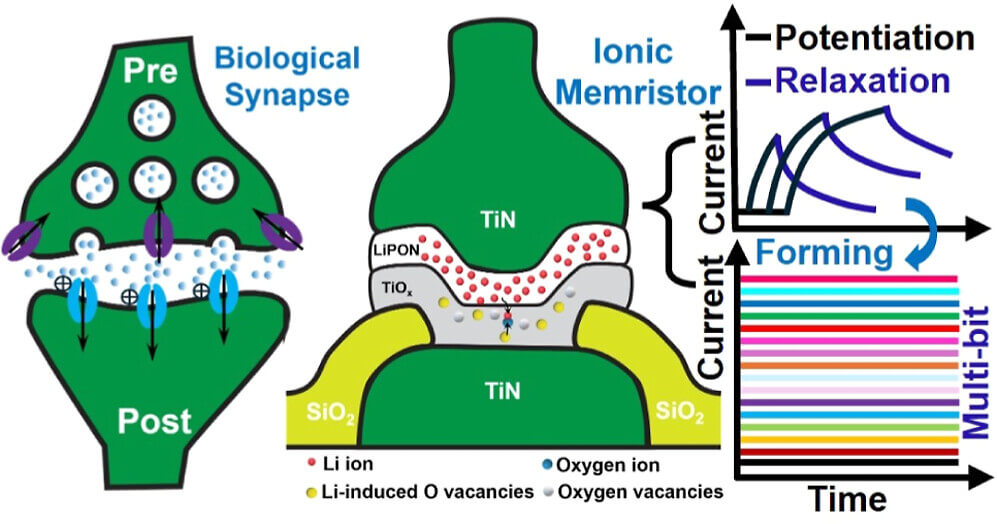
A brain-inspired iontronic platform that mimics hardware-based artificial intelligence
Wednesday, August 7, 2024 Researchers supported by Transformative Quantum Technologies (TQT) have demonstrated an iontronic platform that is configurable to mimic neuromorphic functions on a hardware level. With the rise of artificial intelligence (AI), Internet of Things (IoT), and big data technologies, coupled with the limitations posed by the von Neumann architecture, neuromorphic […]
August 7, 2024
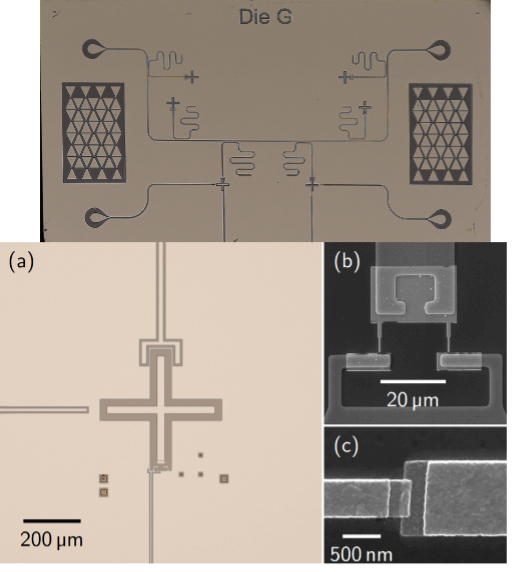
Building Blocks for Quantum Neuromorphic Computing: Superconducting Quantum Memcapacitors
Quantum neuromorphic computing (QNC) is a novel method that combines quantum computing with brain-inspired neuromorphic computing. Neuromorphic computing performs computations using a complex ensemble of artificial neurons and synapses (i.e., electrical circuits) to emulate the human brain. QNC may lead to a quantum advantage by realizing these components with quantum memory elements, or memelements, which […]
June 12, 2023

Enabling Next-Generation Sustainable Computing through Novel Multi-Valued-Logic Quantum Devices
As the demand for digital services grows, so does the need for data centres and transmission networks. Unfortunately, these data systems consume vast amounts of energy, resulting in nearly 1% of all energy-related greenhouse gas emissions. This project aims to invent novel quantum devices for highly energy-efficient computing that may help reduce the global digital […]
June 12, 2023
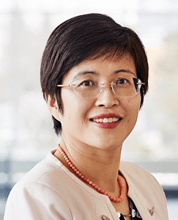
Micro-Supercapacitors Based on Termination Optimized MXene Quantum Dots with Ultra-High Rate Capability and Fast Frequency Response
Micro-supercapacitors (MCs) are miniaturized energy storage devices that can enhance the performance of wearable health devices, medical implants, wireless sensors, and micro-electromechanical systems due to their fast frequency response, long life cycle, and vast temperature operation. However, to make these MC systems into commercially feasible products, necessary improvements to current MC performance are necessary, primarily […]
June 12, 2023
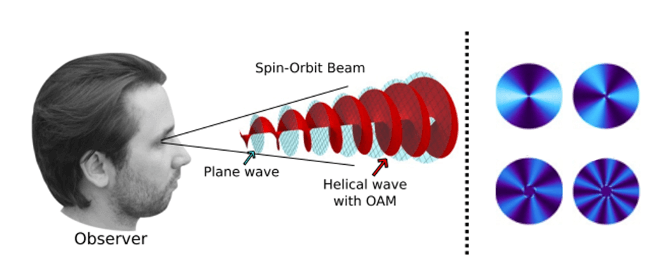
Structured Light Applications in Vision Science
Eye diseases such as macular degeneration can have a devastating impact on quality of life. Early detection and treatment are thus crucial for preventing irreversible vision loss. A previous study found that the human eye can detect differences in ‘structured’ light beams. Such light beams are composed of a coherent superposition of differently polarized planar […]
April 24, 2023
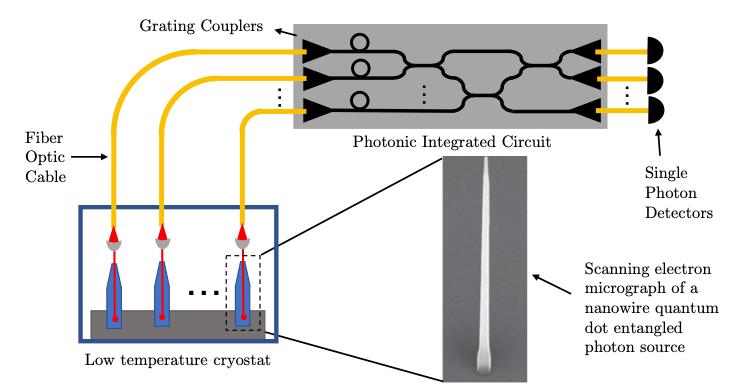
Photonic Quantum Processor
Photonic quantum processors based on integrated quantum photonic circuits require entangled photon pairs to perform quantum computations. However, current state-of-the-art technologies utilize probabilistic entangled photon sources with limited pair-extraction efficiencies, negatively affecting the computation speed. This project aims to boost the speed of on-chip quantum operations by using bright, on-demand entangled photon sources with an […]
April 24, 2023

Spin Generation and High-Frequency Detection via the Quantum Nonlinear Anomalous Hall Effect in Weyl Semimetals
In magnetic conductors, the passage of current yields an electric field in the transverse direction even without an external magnetic field – this is known as the anomalous Hall effect (AHE). This effect can act as a convenient probe of spin ordering, magnetic textures, spin-orbit coupling, and band topology in solids, and can be further […]
April 19, 2023
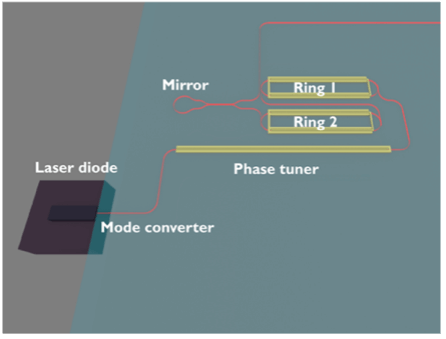
Visible wavelength external cavity diode lasers in photonic integrated circuits for atomic technologies
Atoms can be controlled by manipulating their internal states using agile, quiet and reliable laser sources. An external-cavity diode laser (ECDL) is a crucial enabling technology to realize such laser sources since it allows for the narrowing of the linewidth of a laser diode and precise tuning of the laser frequency. This project aims to […]
April 19, 2023
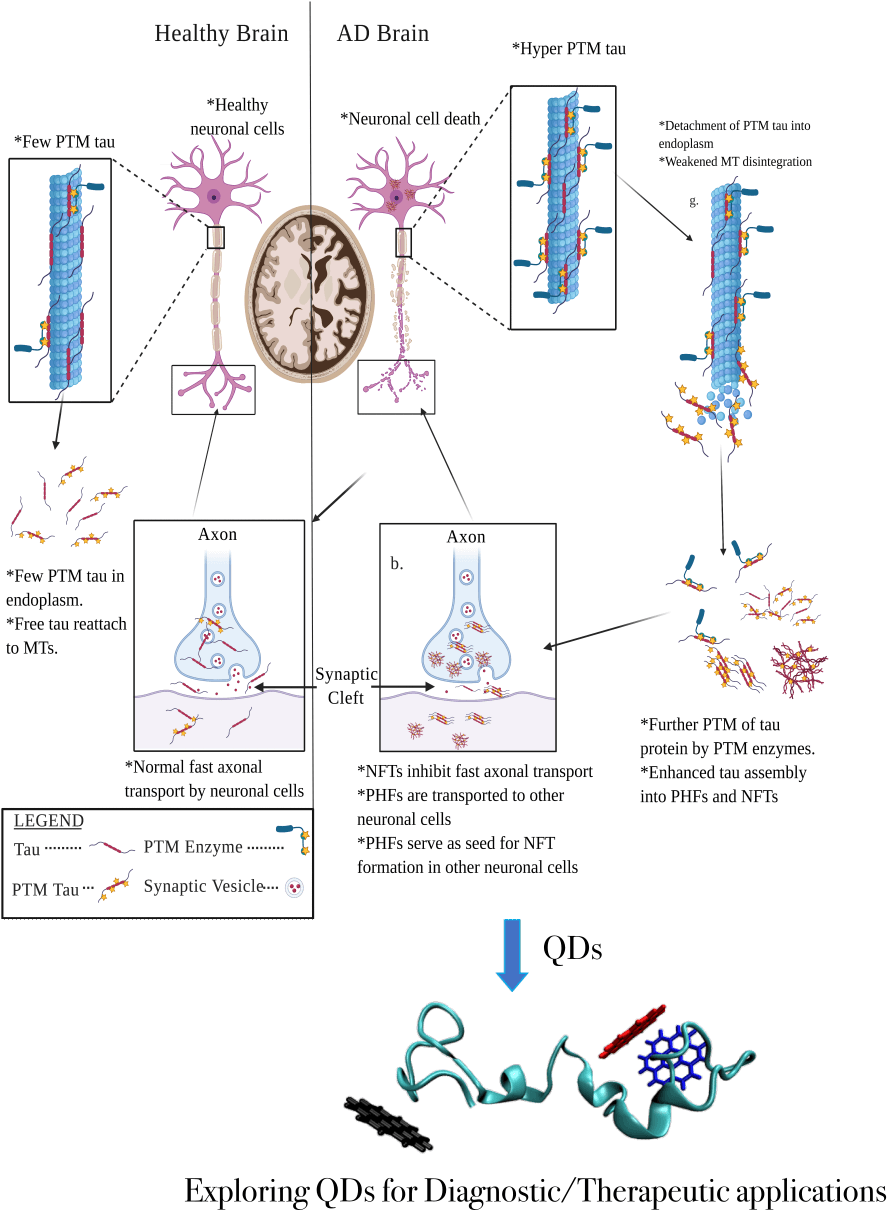
Identifying the Potential of Quantum Dots to Detect and Disrupt Tau Protein Aggregation in Alzheimer’s Disease
Specific tests for Alzheimer’s disease (AD) diagnosis are currently unavailable, despite AD being the leading cause of dementia. One hallmark of AD progression is the aggregation of tau proteins into paired helical filaments and neurofibrillary tangles, which is accelerated by the hyperphosphorylation of Tau proteins. However, the mechanism by which the hyperphosphorylated tau accelerates protein […]
March 27, 2023
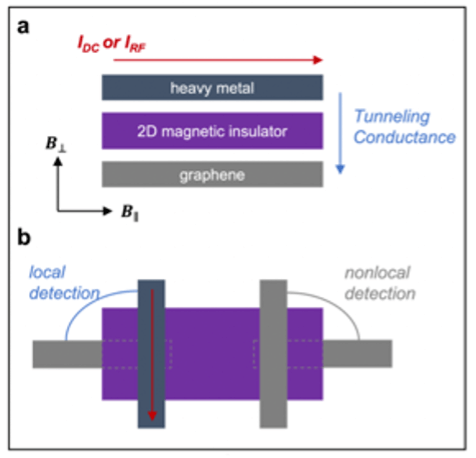
Coherent magnon generation, magnon condensation, and quantum spin liquids via spin pumping in 2D magnets
Summary Developing hybrid quantum systems is essential to harnessing the complementary advantages of different quantum technology platforms. This necessitates the successful transfer of quantum information between platforms, which can be achieved, e.g., by harnessing magnons, or spin wave excitations, in magnetic materials. Decoherence due to uncontrolled coupling of qubits to the environment remains a fundamental […]
February 1, 2023
